Science Meets Longevity
I’ve been asking the same question for a long time:
Why do we age, and can we fight it?
This site is my way of chasing the answers and sharing the tools, insights, and science I find along the way.

Journey Into the Biology of Time
I’ve been asking the same question for a long time:
Why do we age, and can we fight it?
This site is my way of chasing the answers and sharing the tools, insights, and science I find along the way.

Journey Into the Biology of Time
I’ve been asking the same question for a long time:
Why do we age, and can we fight it?
This site is my way of chasing the answers and sharing the tools, insights, and science I find along the way.
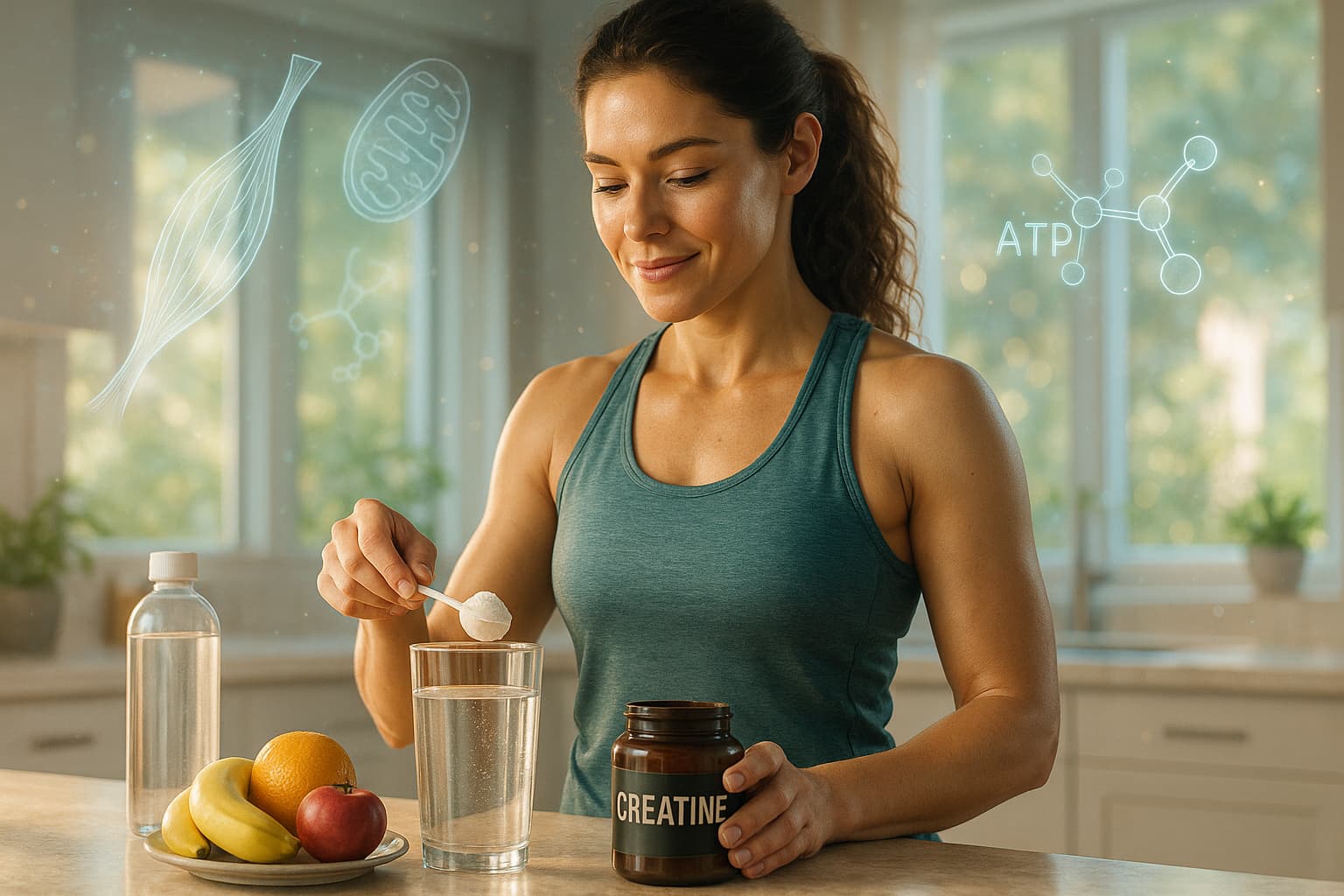
When most people think of creatine, they picture a man at the gym chasing muscle gains. But creatine is not just for men. In reality, the best creatine for women is about energy, recovery, and long-term health.
So, should women take creatine? The myths say it causes bloating or bulk, but science says something very different. Creatine is one of the most studied supplements in the world, and it consistently shows benefits for both men and women. It powers your muscles at the cellular level, helps preserve lean tissue, and even supports brain function.
In the bigger picture of sports nutrition for women, creatine is often missing from the conversation. Among the many workout supplements for women, it stands out for being safe, affordable, and backed by decades of research. The real question is no longer is creatine safe, but rather why more women are not already using it.
This post takes you deeper into how creatine works, why it is so effective for women, and how to choose the right type to match your goals.
These are the companies we trust to deliver high-quality creatine products that support women’s strength, energy, and long-term health.
Disclaimer: This is not medical advice. Always consult with your healthcare provider before starting any new supplement, especially if you have underlying health conditions or are taking medications.
Some of the links below are affiliate links, which means I may earn a small commission if you decide to purchase through them. It doesn’t cost you anything extra, and it helps support the work I do to research and share longevity science.
Think of your muscles as cars on a racetrack. Every time you sprint, lift, or push through a workout, your body needs fuel to keep moving. That fuel is ATP, the energy currency of life. The challenge is that ATP burns out quickly. After just a few seconds of intense effort, your cells need a way to recharge. This is where creatine steps in.
Creatine is a compound your body already makes from amino acids like glycine and arginine. It is stored mainly in your muscles, waiting to be called on when energy demands spike. When ATP runs low, creatine donates a phosphate group that helps recycle ATP, giving you more bursts of power. In simple terms, creatine is the battery pack that keeps your muscles firing when the tank is close to empty.
For women, this matters more than most realize. Energy dips during tough training sessions, long runs, or even busy days can often feel like hitting a wall. By increasing creatine levels inside muscle cells, you expand your energy reserve. That means more reps, better endurance, and quicker recovery. Unlike caffeine, which provides only a short-lived jolt, creatine works at the cellular level to reinforce the entire energy system.
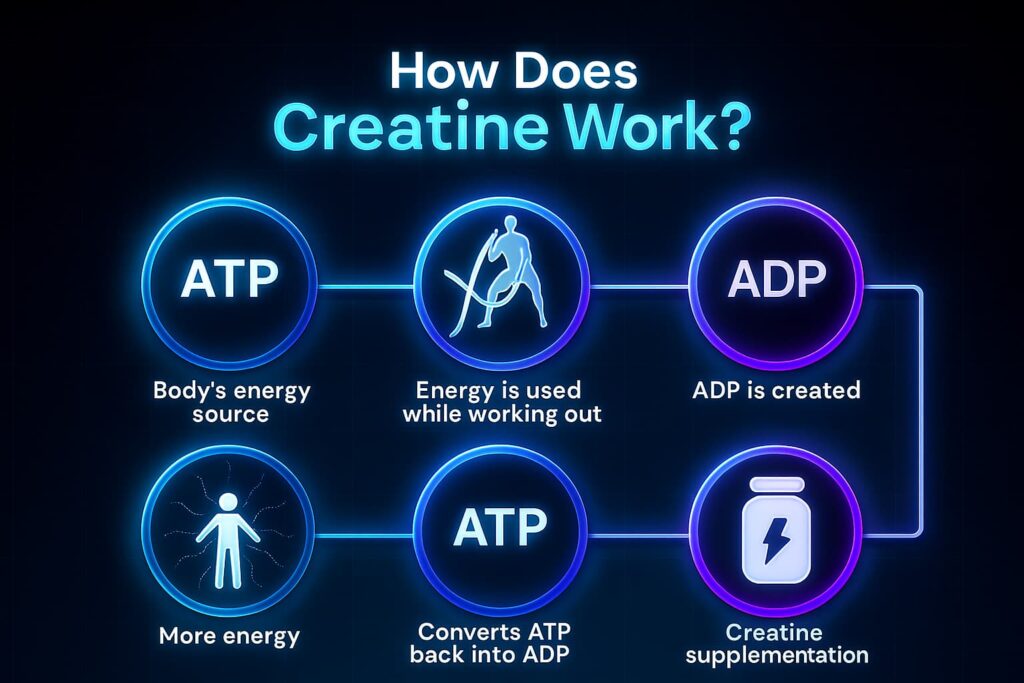
What makes this fascinating is how it connects to the hallmarks of aging. As women get older, mitochondria become less efficient, nutrient sensing becomes deregulated, and muscles naturally lose strength. Supplementing with creatine directly addresses these energy shortfalls by supporting ATP production, maintaining lean muscle, and reducing fatigue. Among all workout supplements for women, creatine stands out because it does not only enhance performance today but also helps guard against age-related decline tomorrow.
The best creatine for women is not about building bulk. It is about ensuring your body has the raw energy to repair damage, preserve strength, and keep performing at its peak. In the broader conversation about sports nutrition for women, creatine is one of the few supplements that bridges the gap between performance and longevity.
And while creatine might sound like a modern discovery, it has been studied for over three decades. Hundreds of trials confirm its role in athletic performance, cognition, and recovery. Across all this research, the question keeps coming back: is creatine safe? The answer, again and again, is yes.
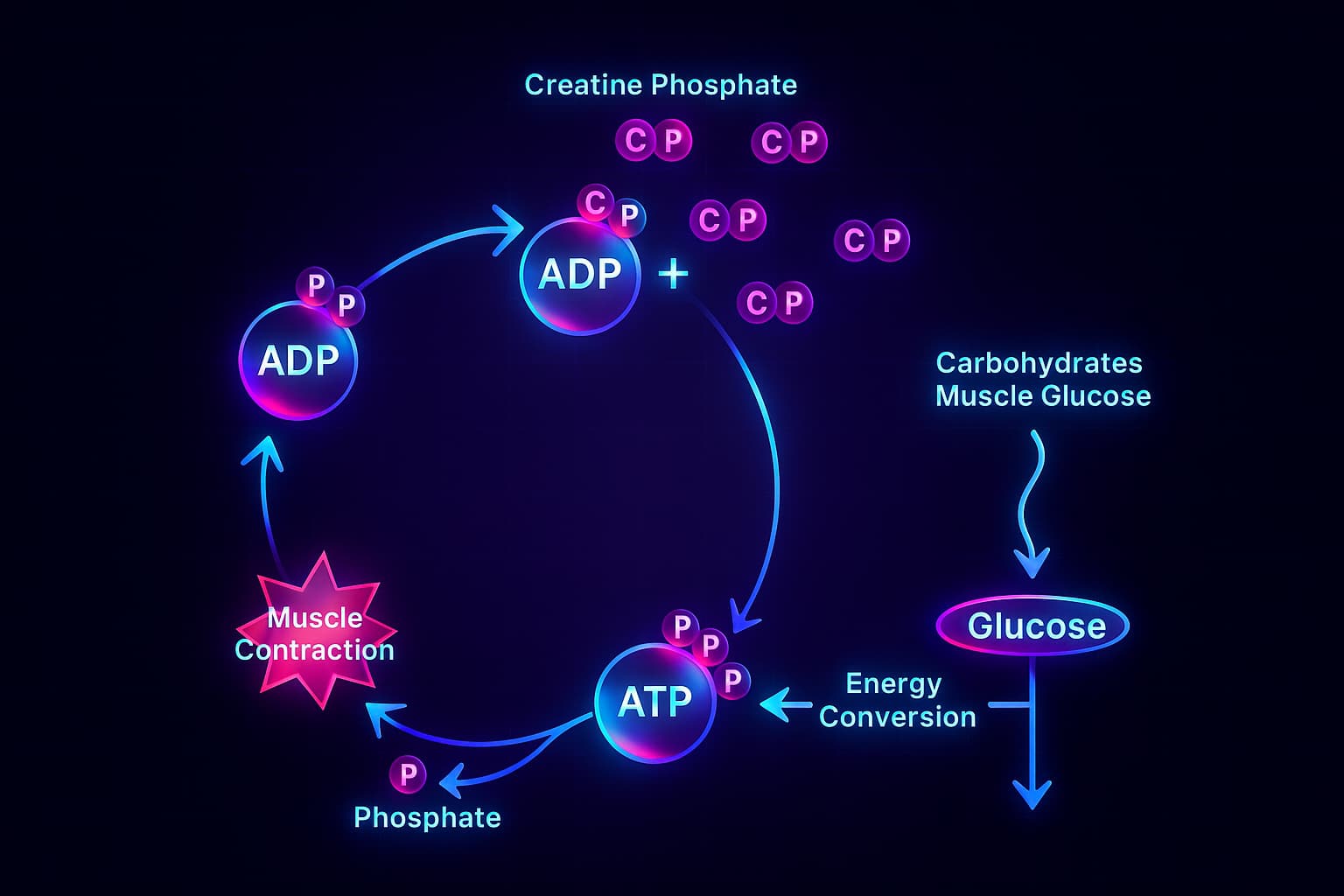
Creatine often gets framed as a “gym supplement,” but its impact goes far beyond adding strength to squats or sprints. For women, the benefits touch on performance, body composition, recovery, and even brain health. Here’s what the science says:
The most obvious benefit is power. Creatine enhances the body’s ability to regenerate ATP, which means you can push harder during high-intensity exercise. That translates into more reps, more sets, and gradual improvements in strength and endurance. For women who want to feel confident and capable in the gym, creatine can be the difference between hitting a plateau and breaking through.
One of the biggest myths is that creatine will make women look bulky. In reality, what it supports is lean muscle mass. Women generally do not produce the testosterone levels required for extreme hypertrophy, so creatine instead helps sculpt and protect lean tissue. This not only improves performance but also keeps metabolism healthy and active as the years go by.
Hard workouts create stress in muscle fibers. Creatine has been shown to reduce markers of muscle damage and improve recovery time. For women juggling training, careers, and family life, this means bouncing back faster and keeping consistency in workouts without constant soreness.
Creatine is not just stored in muscles. It is also found in the brain, where it plays a role in energy metabolism. Research shows it may help with mental clarity, memory, and even mood balance. For women dealing with mental fatigue or stress, creatine may act as a quiet but steady support system.
As women age, muscle mass and strength naturally decline, a process called sarcopenia. Supplementing with creatine can help slow this loss, supporting independence and resilience later in life. It is one of the few workout supplements for women that crosses the boundary between sports performance and healthy aging.
In short: Whether the goal is to train harder, recover faster, or age gracefully, the best creatine for women delivers benefits that go far beyond the weight room. It’s not only a sports aid, but a long-term investment in strength, energy, and overall vitality.
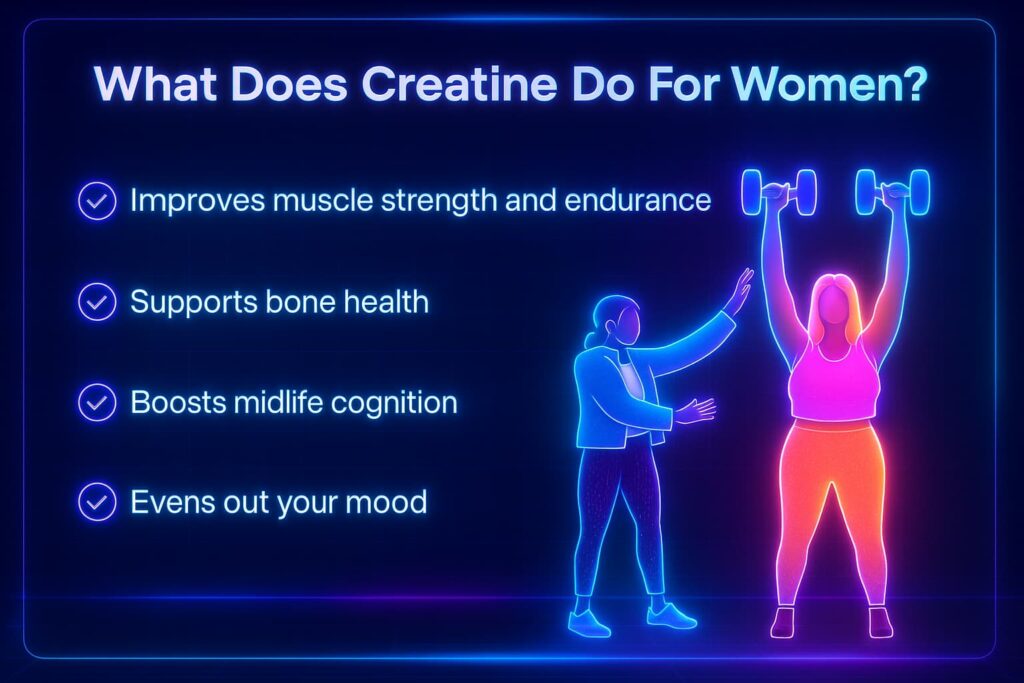
Whenever supplements are discussed, the first question is always safety. With creatine, the Whenever supplements are discussed, the first question is always safety. With creatine, the question is creatine safe has been asked for more than three decades. The reassuring answer is yes. Across hundreds of studies on athletes, older adults, and specifically women, the research consistently shows that creatine is one of the safest and most effective workout supplements for women.
Many women hesitate to try creatine because of persistent myths. Let’s clear them up:
Although the safety record is excellent, some mild side effects can occur:
These side effects are minor compared to the benefits and are easily managed with smart use.
When experts compare different workout supplements for women, creatine consistently ranks at the top for both effectiveness and safety. Even in long-term studies lasting years, women who used creatine daily experienced no harmful effects. Beyond the gym, creatine has been studied for mood balance, pregnancy recovery, cognitive function, and post-menopause muscle support, making it a unique tool in sports nutrition for women.
The typical daily dose is 3 to 5 grams, which is effective and safe for nearly everyone. There is no need for extreme loading phases. The most important factor is consistency. Whether you choose powder, capsules, or gummies, the best creatine for women is the one you will take every day. For women with health conditions, it is always wise to consult a healthcare professional, but for the majority, creatine is one of the safest and most reliable workout supplements for women available.e vast majority, creatine is one of the safest additions to a wellness routine.
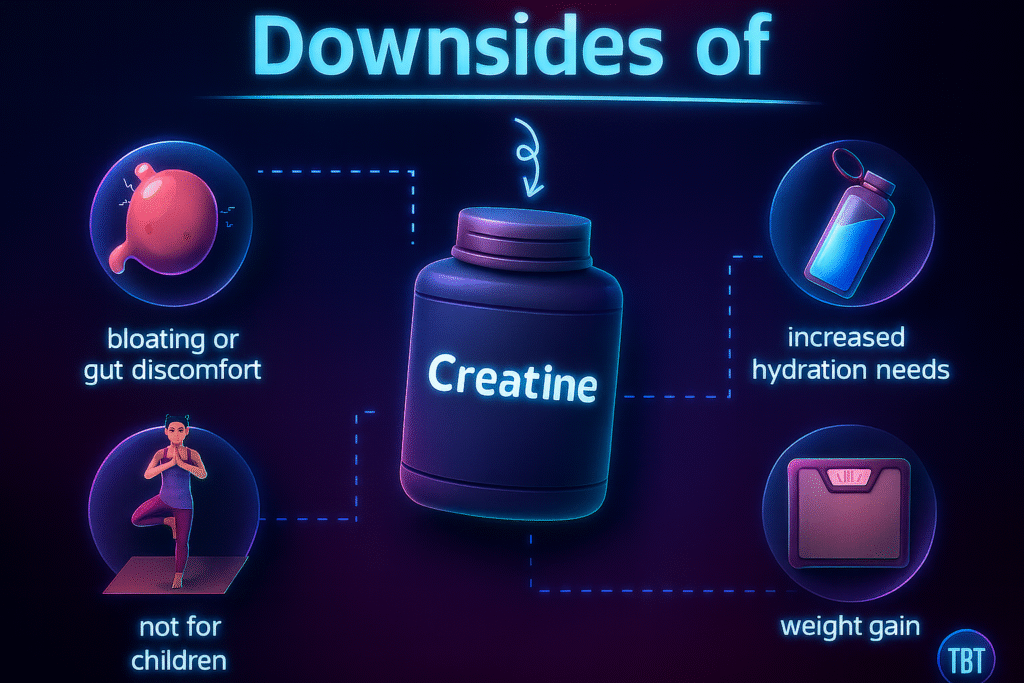
Not all creatine supplements look the same when you scan the shelves. Shiny tubs, flavored powders, pills, and gummies can feel overwhelming. The good news is that the core molecule is identical. What changes is the form it comes in and how it is delivered. Let’s break down the most common types and see which one earns the title of best creatine for women.
If you only remember one thing, let it be this: creatine monohydrate is the most researched, most effective, and most affordable form available. Nearly every study showing the benefits of creatine, from stronger workouts to faster recovery, used monohydrate. For women looking for reliability and value, this is the clear winner.
Micronized creatine is simply creatine monohydrate that has been processed into smaller particles. This makes it dissolve more easily in water and reduces the gritty texture that some powders have. If taste and smoothness matter to you, micronized creatine is a convenient upgrade.
Some women prefer creatine hydrochloride (HCL) because it dissolves quickly and may be easier on digestion. It often comes in smaller doses due to its higher solubility. While the research is not as extensive as for monohydrate, many women find it more comfortable to take.
For those who dislike mixing powders into water, creatine now comes in more lifestyle-friendly formats. Gummies and capsules make it easy to take creatine on the go, while flavored powders can double as a pre-workout treat. These options often cost more, but they make consistency easier, which is the key to results.
Since natural dietary creatine is found mainly in meat and fish, women following plant-based diets may start with lower baseline levels. Vegan creatine supplements, usually in powder or capsule form, offer the same benefits without animal sources. This makes them an excellent choice for women focused on plant-based sports nutrition.
If your goal is effectiveness backed by science, creatine monohydrate remains the top choice. If you struggle with texture, go for micronized. If you need gentler digestion, try HCL. And if you want the simplest routine, capsules or gummies work just fine.
No matter the format, the most important factor is consistency. A daily dose of 3 to 5 grams is enough to unlock the benefits. Whether you are building strength, improving recovery, or investing in healthy aging, the best creatine for women is the one you can take every single day.
Once you have chosen your supplement, the next question is how to take it for the best results. The good news is that creatine is one of the simplest supplements to use.
Most studies agree that a daily dose of 3 to 5 grams is ideal for women. This amount is enough to keep muscle stores saturated and to deliver the full range of benefits. Some people experiment with higher doses for short “loading phases,” but this is not necessary. What matters most is taking it consistently.
Unlike caffeine or pre-workout powders, creatine does not rely on immediate timing. You can take it in the morning, before your workout, after your workout, or even before bed. The key is that you take it every day. Some research suggests that taking creatine with a meal that contains carbohydrates and protein may improve absorption, but even this is optional.
Think of creatine like brushing your teeth. Missing one day is not a disaster, but regular use is what builds lasting benefits. Whether you choose a powder, capsule, or gummy, find a way to work it into your routine so it becomes effortless.
Creatine draws water into your muscle cells. This is one of the reasons it helps muscles function better, but it also means you should pay attention to hydration. Drinking enough water throughout the day will support energy, recovery, and overall well-being.
Creatine pairs well with other workout supplements for women. Many women combine it with protein powder for muscle repair, or with electrolytes for hydration. Since creatine is not a stimulant, it can also be safely used alongside pre-workout blends if desired.
Creatine has spent years in the shadow of gym myths, often seen as a supplement only for men chasing muscle mass. The science tells a very different story. When we look at the research on sports nutrition for women, creatine consistently stands out as one of the safest and most effective tools available.
So, should women take creatine? The answer is yes. From stronger workouts and faster recovery to brain health and long-term resilience, creatine offers benefits that extend far beyond the gym. Among all workout supplements for women, it has the most consistent evidence, the clearest impact, and a direct connection to healthy aging.
The question is creatine safe has been tested for decades, and the verdict is clear. For healthy women, daily supplementation is not only safe but also a powerful investment in performance and longevity. What makes creatine unique is that it touches several hallmarks of aging: it supports energy production when mitochondria begin to slow down, it helps preserve lean muscle as stem cells gradually exhaust, and it may even protect the brain as communication between cells changes with age.
The best creatine for women is whichever form you can take consistently. For most, creatine monohydrate is the top choice, but micronized powders, HCL, capsules, and vegan options all provide the same benefits. Consistency matters more than format.
When you think of longevity, creatine fits right alongside other well-studied allies such as NMN, CoQ10, and spermidine, as well as lifestyle habits like regular strength training, quality sleep, and nutrient-dense diets. All of these strategies work together to protect against the gradual cellular changes that drive aging.
In the end, creatine is not about chasing bulk. It is about fueling your cells, preserving lean muscle, and keeping your body resilient against the challenges of training and daily life. Among workout supplements for women and across the entire field of sports nutrition for women, creatine is safe, affordable, and proven by science. It deserves its place as one of the most effective and reliable longevity tools women can add to their health and fitness journey.